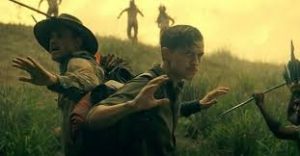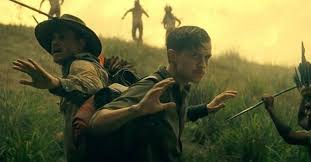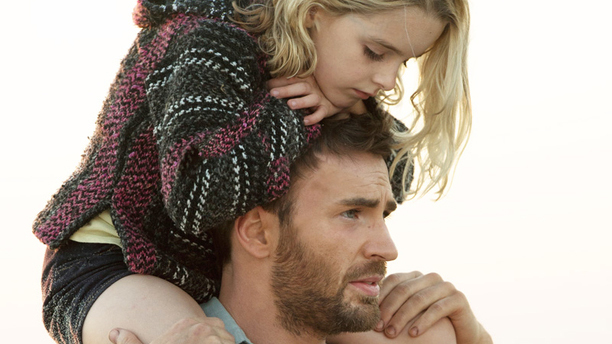Interview: Writer/Director James Gray of “The Lost City of Z”
Posted on April 12, 2017 at 3:55 pm
James Gray wrote and directed the adventure movie “The Lost City of Z,” based on Percy Fawcett, the real-life explorer who inspired fictional characters from Indiana Jones to the swashbuckling heroes of books by Arthur Conan Doyle and H. Rider Haggard. The movie stars Charlie Hunnam, Robert Pattinson, and Sienna Miller. Gray and his crew had to re-create the arduous journey through the South American rainforest; while they had better technology than Fawcett’s group, they also had to bring along all of the equipment to make the film.
In an interview, Gray talked about the directors who inspired him — and why he had to make some different choices than the ones in their classic films.
It’s 100 years after the events in the film. Tell me how you approach dealing with issues of gender and race that acknowledges the realities of its era without distracting us unnecessarily?
Wow, that’s a heavy one. How did I deal with it, well, with great difficulty and with kid gloves. It’s one of the advantages we have and it’s not about judging the characters, that’s not really what I’m saying but a more global view, a more…how do I say this? A more progressive view, a more open view hopefully of the ideas of gender, class and ethnicity that has to be part of the film. And I felt that if I could make a movie in the style of let’s say David Lean, who I revere, but bring, dare I say this, a more advanced or different approach to the politics of it — for example,”Lawrence of Arabia he has Alec Guinness playing an Arab which is absurd today.
So, I felt that that was the way that I could do something different from what Mr. Lean did. And in the case of something like an “Apocalypse Now,” as great as I think it is, and I think it is the greatest, there certainly aren’t any women in it of any importance. A Playboy playmate is pretty much the only woman in the whole movie. So, I felt that it was important that I give everybody a sort of fair shake at the narrative and that everybody’s existence would be entirely independent. So, Sienna Miller’s character has her own hopes and dreams and that the film acknowledges those desires. And the indigenous people of South America would be independent and not demand a white male European view of the world to exist. People talk about what they call the Magical Negro in movies where this African-American character has all these magical qualities throughout which is in its own way deeply racist. My ambition was to do something the opposite of that, which was that the indigenous people of Amazonia would function in a way that was entirely free from any need for the white man. 
And really the approach was to try and bring a certain dignity and humanity to every single person in the movie. And so, I’ve tried to think of it in those terms.
For me one of the most intriguing characters in the film was Murray, the veteran of the Shackleton expedition to the Antarctic but a terrible problem for Fawcett.
In the book he goes on I think it’s eight trips, so I had to condense that to three. When I approached it I thought, “Okay if it’s three trips, each trip has to have a different meaning.” The first trip is about the exposure to his obsession and how the obsession settles in and what it becomes and what it starts to mean for him. The second trip with Mr. Murray would have to be about how he saw the trip in the beginning as cementing his position not only in society but in history and really it was an act of ego to bring Mr. Murray along. He was going for glory and he thought Murray would bring an incredible luster. Murray’s ethical bankruptcy is in a way Fawcett’s fault because he chose Murray to go with him. That was the price he paid for wanting that because Murray is the lie of one class’s superiority over the other. Murray is the person who’s “Oh look how much wealth I have.” He’s a man of means and prestige and yet he’s a fraud.
So, Murray was a lesson for Fawcett really that the measure of a man has nothing to do with class or rank. That was what I thought the whole trip meant. He had to learn that and the third trip was his atonement for his neglect. It became a much more spiritual experience for him because he was able to enjoy it with his son. On the third trip he could achieve a measure of transcendence because he had already been through the second trip with this person who showed him that the search for glory and class validation was a bankrupt position.
Were you able to read some of Percy’s own journals?
I sure did. In addition to the Grann book I read Exploration Fawcett which is a compilation of his journal entries along with some editorializing by his son Brian that was put out many years later. I’m sure there is some embellishment from Brian, who was anxious to validate his father’s journeys but I’m sure it still had a bunch of Percy’s actual words still in them. I tried to adhere to Fawcett’s own words in as many places as possible. That Royal Geographical Society speech that he gives, which is about a seven and a half-minute long scene in the center of the movie is almost entirely his actual words. I read his letters too, back and forth to his wife and Charlie Hunnam and Sienna Miller did too. That was actually the best window into who those people are that we could have found. And I think it was necessary work.
Did you feel in a way as you were filming in South America that you were re-experiencing some of what he experienced? Did you learn what he went through just from being there?
Probably not because I’m nothing like Fawcett. I’m a wimp and I was only there for four months and he was in it for years. He didn’t have GPS and he didn’t have a bed at night to sleep in. I had clothes with special coating so I didn’t get bitten by anything. It must’ve been unbelievably difficult and I can’t understand how he did it. I mean we were there only four months and one crew member got malaria and two people got dengue. Somehow he marched to the jungle multiple times in the eight trips he went on that’s really about 20 years’ worth of living.
What would have happened if he found the City of Z?
Perhaps if he had found it, it would have been kind of anticlimactic for him. We have a real-life example of this in Hiram Bingham, who discovered Machu Picchu but his life had to have another act. He became a Senator. And I feel like if Fawcett had found some city in the jungle he would’ve looked at it for about twenty minutes and thought, “This is totally amazing. What the hell do I do now?” So much of what it was about for him was about the need to escape.
What is it that you think drives people to become explorers, to go past what is on a map?
There are noble qualities to exploration, there really are. There is an unending curiosity, there’s a remarkable drive, there is a stunning courage but there are also darker, less noble, aspects to it. One is the need to escape confronting what it means to be a person living in this world. I think that Fawcett’s whole need for exploration was in part a need to get out, a need to get away from what was very obviously a situation that was punishing to him. The father was a terrible alcoholic and was a gambler. He destroyed not one but two family fortunes. It shamed the family. So Fawcett was trying to escape from Victorian England and the cruelty of that world that seemed so punishing. And I think part the need for exploration is just to get out.



